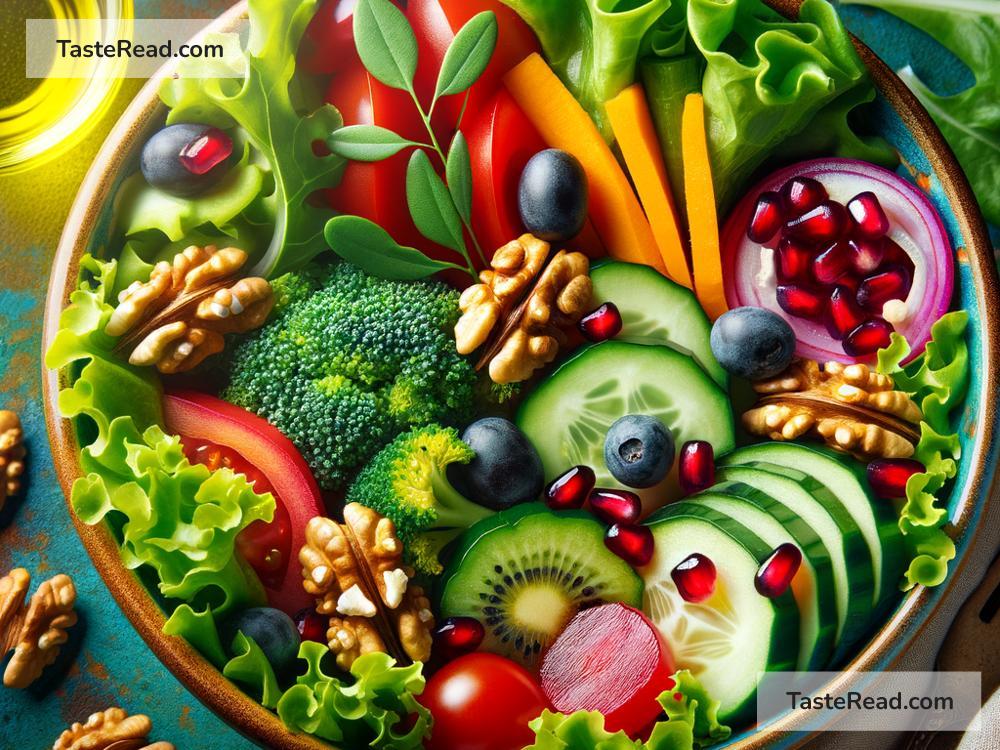Understanding the Role of Dietary Polyphenols in Health
When it comes to eating healthy, you’ve probably heard the saying, “Eat your fruits and vegetables.” But have you ever wondered why these foods are so good for you? One reason is that they are packed with special compounds called polyphenols. These tiny nutrients might sound complicated, but they play a huge role in keeping our bodies healthy. Let’s explore what polyphenols are, why they matter, and how you can make sure you’re getting enough of them in your diet.
What Are Polyphenols?
Polyphenols are naturally occurring compounds found in plants. They serve a protective role for the plant, helping it fight off harmful pests, diseases, and environmental stress. Luckily for us, when we eat plant-based foods, we also benefit from these amazing compounds.
Scientists have identified over 8,000 types of polyphenols, which are grouped into four main categories: flavonoids, phenolic acids, stilbenes, and lignans. Chances are, you’ve already consumed many of these compounds today—whether it’s in your morning cup of coffee, a piece of fruit, or a handful of nuts.
Why Polyphenols Are Important for Health
So, what makes polyphenols so special? These compounds have been studied extensively for their ability to protect the body from various diseases and improve overall health. Here are some of the main benefits:
1. Powerful Antioxidants
Polyphenols are best known for their antioxidant properties. Antioxidants help protect your cells from damage caused by harmful molecules called free radicals, which can lead to aging and diseases such as cancer, diabetes, and heart conditions. Eating foods rich in polyphenols can act like a shield for your cells and keep them healthy.
2. Fighting Inflammation
Chronic inflammation has been linked to many diseases, including arthritis, heart disease, and Alzheimer’s. Polyphenols have anti-inflammatory effects that help reduce inflammation in the body. By calming inflammation, polyphenols play a role in preventing long-term health problems.
3. Heart Health
Many studies have shown that polyphenols can improve heart health. They help lower blood pressure, reduce bad cholesterol levels, and improve the overall function of blood vessels. They also prevent platelets from sticking together, which reduces the risk of blood clots. This is one of the reasons why foods like dark chocolate and red wine (in moderation) are linked to better heart health—they’re rich in polyphenols!
4. Gut Health
Your gut is home to trillions of bacteria that play a vital role in digestion, immune function, and overall well-being. Polyphenols encourage the growth of good bacteria in your gut, which helps maintain balance and boosts gut health. A healthy gut is connected to better digestion, stronger immunity, and even improved mood and mental health.
5. Helping Prevent Diseases
Polyphenols are linked to lower risks of several diseases, including cancer, diabetes, and neurodegenerative disorders like Alzheimer’s. Studies suggest that they can interfere with the growth of cancer cells, improve insulin sensitivity (helping your body manage blood sugar), and protect brain cells from age-related damage.
Where Can You Find Polyphenols?
Polyphenols are found in a wide variety of plant-based foods. Here’s a list of some common sources:
- Fruits: Apples, berries (blueberries, strawberries, raspberries), oranges, cherries, and grapes.
- Vegetables: Spinach, onions, broccoli, carrots, artichokes, and potatoes.
- Beverages: Green and black tea, coffee, and red wine (again, in moderation!).
- Nuts and Seeds: Walnuts, almonds, flaxseeds, and chia seeds.
- Spices and Herbs: Turmeric, ginger, cinnamon, parsley, oregano, and thyme.
- Dark Chocolate and Cocoa: These treats are surprisingly rich in polyphenols, especially if they’re minimally processed.
- Legumes: Lentils, chickpeas, and beans like black beans and kidney beans.
How to Add More Polyphenols to Your Diet
Getting more polyphenols in your diet is easier than you think! Here are a few tips to make sure you’re enjoying their benefits:
- Eat the Rainbow: Choose colorful fruits and vegetables. The brighter and more varied your plate, the more likely you are to get a variety of polyphenols.
- Sip Smart: Swap sugary drinks for green tea, herbal teas, or coffee. These are natural sources of polyphenols.
- Spice Things Up: Add herbs and spices like turmeric, ginger, or cinnamon to your cooking.
- Snack on Nuts and Seeds: They make a delicious and easy snack that’s loaded with polyphenols.
- Choose Whole Grains: Whole grains like oats, quinoa, and buckwheat contain more polyphenols than refined grains.
Are There Any Risks?
Polyphenols are generally safe and beneficial for most people. However, consuming them in excessive amounts through supplements could sometimes lead to unwanted side effects. It’s best to stick to natural food sources to get the right balance—you’re more likely to enjoy their benefits without overdoing it.
The Bottom Line
Polyphenols are like a superhero team in your diet, working behind the scenes to protect your health and fight off diseases. By eating plenty of plant-based foods like fruits, vegetables, nuts, and spices, you can take advantage of their powerful benefits. Remember, small changes to your eating habits can make a big difference in your long-term health, so load your plate with polyphenol-rich foods and enjoy a healthier, happier you!

